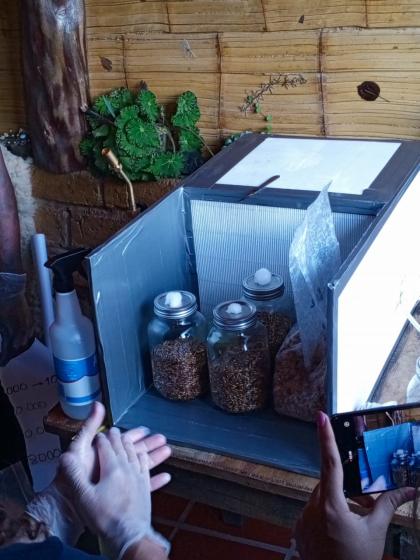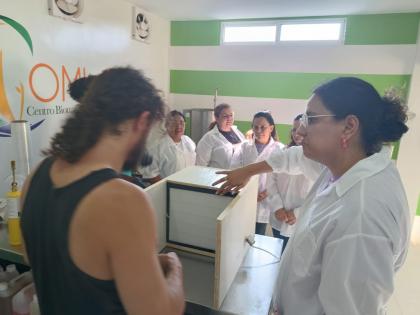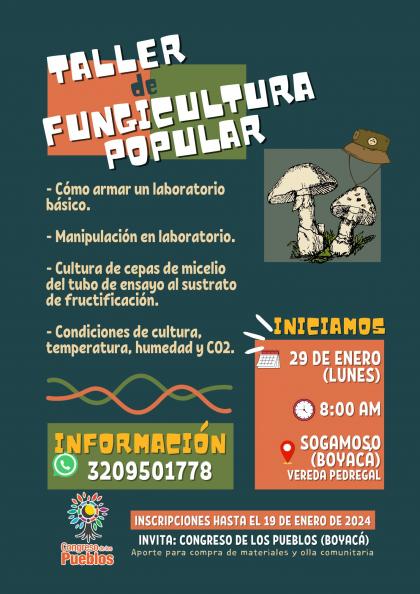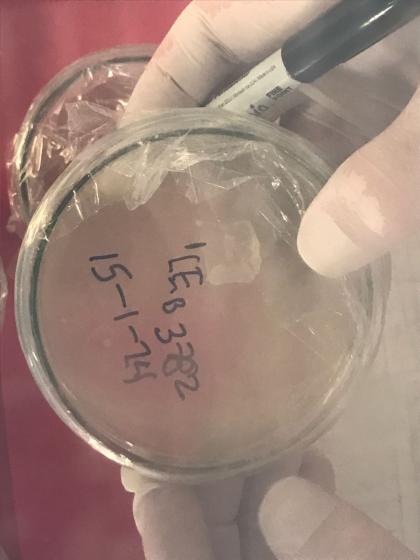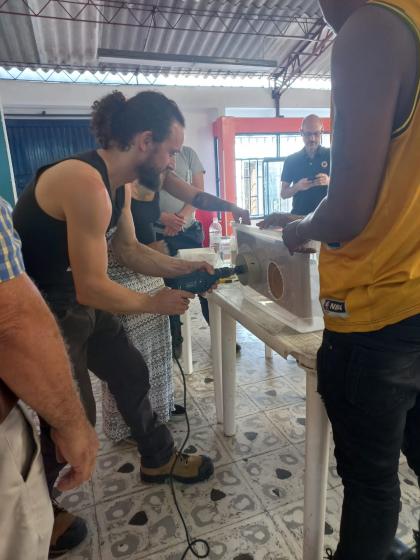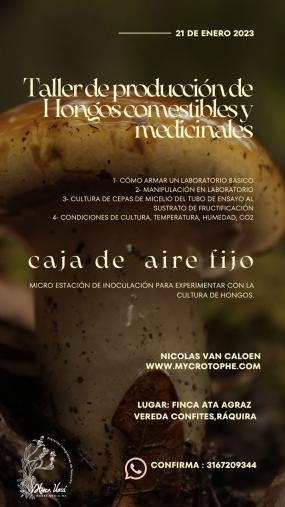
From January 10 to 30, 2024, Mycotrophe and PASC organized the first “Fungicultura popular” tour in collaboration with Congreso de los Pueblos and Redher. During this popular mycology tour, a dozen workshops were held to share technical knowledge on mushroom cultivation, laboratory cultivation, micro-laboratory construction and production methods adapted to the territory. The workshops highlighted mycology as an alternative for the local economy, food sovereignty and health autonomy processes.
The tour began in the Café zone in Ibague, Perreira and Antioquia. At each workshop, between 15 and 30 people were present, sometimes having travelled over 6 hours by bus to get there, notebook in hand. People of all ages, from both urban and rural backgrounds, set about the task of building inoculation incubators, which allow mycelium to be manipulated in any circumstance with a simple plastic crate. For the uninitiated, mycelium is the plant whose fruit is the fungus.
The team was accompanied by the Guardia Cimarrona (Brown Guard), who co-piloted our mobile fungi for over 2,000 km as it moved from tropical climates to colder ones at 4,500 m altitude. The tour then headed to Boyaca to grow local oyster mushrooms in Raquir and Moniquira, where there was an educational forest, a collective project by a farmers' association to link up the oak corridor.
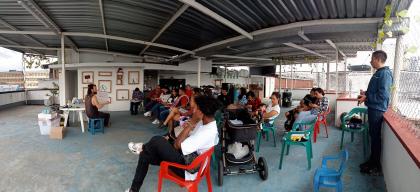
The tour then headed for Santander, where we were welcomed by the Almorzadero Paramo Women's Association. The Paramos are protected ecosystems where, among other things, the Frailejones grow, century-old trees that only grow a centimetre a year. These ecosystems are threatened by mining interests, notably Canadian, and in recent days by arson attacks: hundreds of hectares of Frailejones burnt down in January. The Paramos account for 70% of Colombia's freshwater reserves.
At its educational farm in Lebrija, Santander, the Popular Women's Organization, which already produces essential oils, soaps and other medicinal products, has built its own inoculation hood to start growing mushrooms.
The tour ended in the city of Bogotá, in the Usaquen locality.
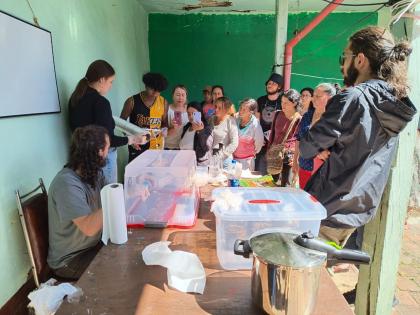
Despite a variety of locations, and considering all kinds of contamination risks, where cat, dog and pig hair could have jeopardized the mycelium culture, the tour is already a success. The first cultures grown during the workshops have already been transferred to local substrates after a few days of colonization.
All in all, 250 people from dozens of local organizations were able to take part in these workshops, and all with a total budget of 2,500 Canadian dollars. By the way, we still have some $1,000 to raise if you'd like to support the initiative!
“Thank you so much for this wonderful sharing, let's internationalize the struggle, let's globalize hope”.
“We are already ready to develop the cultivation of oyster mushrooms and shiitake in substrates specific to the region grown in agro-ecological systems .”
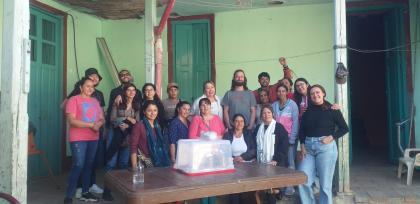
“I found it very important what Nicolas mentioned, that these scientific exercises are spaces for the democratization of knowledge, outside universities. It's important to transmit knowledge to the working classes who don't have access to higher education, and that this knowledge is not limited to these spaces, but can and should be reproduced among ordinary people.”
